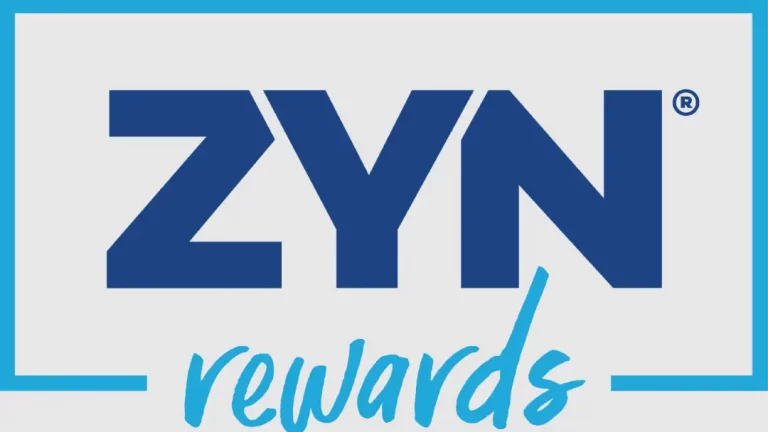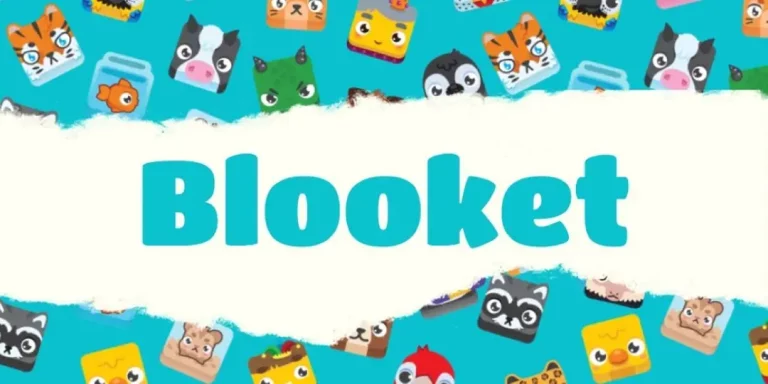Exploring the Educational Value of Rodney James’ Diary of a Wimpy Kid
Introduction to Rodney James’ Diary of a Wimpy Kid
Welcome, dear readers, as we embark on an exploration of the highly popular children’s book series, Diary of a Wimpy Kid. Penned by the talented Rodney James, these books have garnered international acclaim and have found a special place in the hearts of both children and adults. But what makes this series so unique? Let’s delve into it.
A Glimpse into the Diary of a Wimpy Kid Series
The Diary of a Wimpy Kid series is a humorous collection of fiction books that follow the life of middle-schooler Greg Heffley. Through Greg’s diary entries, we get a sneak peek into his life, filled with adventures, mishaps, and life lessons. Each book in the series presents fresh narratives, keeping readers hooked with their relatable themes and engaging storytelling.
Meet The Man Behind The Books: Rodney James
Rodney James, the creative genius behind this bestselling series, is an author whose work resonates with readers of all ages. Known for his ability to craft stories that are both entertaining and insightful, James has successfully captured the essence of childhood and adolescence in his books. His knack for blending humor with real-life situations is what sets his writing apart, making him a favorite among young readers and adults alike.
Why Diary of a Wimpy Kid Appeals to Everyone
One might wonder – why is Diary of a Wimpy Kid adored by such a diverse audience? The answer lies in its universal appeal. Children find themselves relating to the protagonist, Greg Heffley, and his daily struggles. They see a bit of themselves in the character, making the reading experience more personal and enjoyable. Adults, on the other hand, appreciate the humor and often find themselves reminiscing about their own childhoods. Moreover, the series provides plenty of opportunities for parents and educators to discuss important topics like friendship, family dynamics, and coping with school life.
So whether you’re a child navigating through the maze of adolescence or an adult seeking a fun and meaningful read, Diary of a Wimpy Kid is a series worth exploring. As we proceed to the next sections of this blog, we will delve deeper into the themes presented in these books, their potential educational value, and how they can be used as effective tools in education. Stay tuned!
Unpacking the Themes in Diary of a Wimpy Kid
As we delve deeper into the world of “Diary of a Wimpy Kid,” it becomes apparent that the series is more than just a collection of humorous anecdotes. It explores several crucial themes that resonate with the real-life experiences of children, making it a relatable and impactful read.
Discussion of the Main Themes
The first theme to note in “Diary of a Wimpy Kid” is the struggle for social acceptance. The protagonist, Greg Heffley, spends a significant amount of time trying to fit in with his peers. This struggle is something many children can relate to as they navigate their own social landscapes at school or in their neighborhoods. Another prominent theme is the importance of friendship. Despite the ups and downs, Greg’s friendship with Rowley provides a sense of belonging and support, demonstrating the significance of maintaining strong bonds during the tumultuous pre-teen years.
Relating Themes to Real-Life Experiences
The themes in “Diary of a Wimpy Kid” are not merely fictional constructs; they mirror the real-life experiences of many children. For instance, the anxiety about social acceptance is a common part of growing up. As children transition from childhood to adolescence, they often face pressure to conform to certain social norms or standards. Similarly, the theme of friendship reflects the reality that relationships can be complex and challenging but ultimately rewarding. These themes provide readers with an opportunity to reflect on their own experiences and emotions in a safe and engaging way.
Presenting Themes Through Humor and Unique Narrative Style
The beauty of “Diary of a Wimpy Kid” lies in its ability to present these serious themes in a light-hearted manner. The book’s humor makes it entertaining while its unique narrative style, presented as a journal with hand-written notes and cartoon drawings, appeals to young readers. This combination ensures that the themes are not overwhelming or didactic, but rather subtly woven into the fabric of the story. This distinctive approach allows children to engage with the material on their own terms, learning and growing as they journey alongside Greg Heffley.
By exploring these themes, “Diary of a Wimpy Kid” goes beyond entertainment, offering insightful lessons about life, growing up, and navigating relationships. These themes are presented in a way that is both enjoyable and accessible for children, making the book a valuable tool for both reading pleasure and personal growth.
The Educational Value within Diary of a Wimpy Kid
The ‘Diary of a Wimpy Kid’ series, penned by Rodney James, is more than just a laughter-inducing collection of books. Beneath its humor and relatable narrative, it houses a wealth of educational value. The following paragraphs delve into these educational aspects, the lessons that readers can assimilate from the characters’ experiences, and how the book can be employed as an educational tool at home or in schools.
Unearthing the Educational Aspects
One of the most potent educational aspects of the ‘Diary of a Wimpy Kid’ lies in its ability to promote literacy skills. The series employs simple language and engaging illustrations, making it an optimal choice for reluctant readers. It encourages reading for pleasure, a factor identified by the National Literacy Trust as a strong influence on children’s cognitive development and educational attainment (Clark & Rumbold, 2006).
Furthermore, the books feature a wide range of vocabulary, presenting readers with opportunities to enhance their word knowledge. They also expose readers to different forms of writing, such as diary entries, lists, and comics, which can ignite creativity and foster a love for various modes of self-expression.
Lessons from Characters and Experiences
The characters in the ‘Diary of a Wimpy Kid’ series encounter situations that mirror real-life experiences of many children. For instance, Greg Heffley, the protagonist, grapples with challenges like fitting in school, dealing with siblings, and navigating friendships. These scenarios can help readers learn valuable life lessons about empathy, resilience, and interpersonal relationships.
In addition, Greg’s character flaws, such as his occasional selfishness and dishonesty, are not glossed over but instead serve as points of discussion. This encourages critical thinking and promotes discussions about ethics and values, providing learning opportunities beyond academic skills.
Using the Book as an Educational Tool
Given the rich educational value embedded in the ‘Diary of a Wimpy Kid’ series, it comes as no surprise that educators and parents alike have leveraged the books as teaching tools. In classroom settings, the series can be used to stimulate class discussions, inspire creative writing tasks, and even act as a springboard for projects related to other subjects such as art or social studies.
At home, parents can use the books as a platform to discuss topics that may otherwise be difficult to broach, like bullying and peer pressure. Additionally, the series can spark a habit of regular reading, contributing to improved literacy, better comprehension skills, and a lifelong love for books.
From promoting literacy skills to encouraging critical thinking, the ‘Diary of a Wimpy Kid’ series proves that learning can be both fun and engaging. Its relatable content, coupled with its humorous approach, makes it a valuable educational asset for both schools and homes.
Benefits of Using Diary of a Wimpy Kid in Education
At this point, we’ve explored the themes and educational value found within Rodney James’ Diary of a Wimpy Kid. Now, it’s time to delve into how this book can be effectively incorporated into a school curriculum, and why it’s an excellent choice for educators.
Incorporating Diary of a Wimpy Kid into the Curriculum
The flexible nature of Diary of a Wimpy Kid allows it to be integrated into various aspects of the school curriculum. For instance, it can be utilized in English Language Arts programs to encourage students to read more. Teachers can assign chapters as reading homework or use them in class for guided reading sessions. The book can also serve as a springboard for writing exercises, with students asked to create their own diary entries inspired by the protagonist, Greg Heffley’s experiences.
Potential Benefits for Students
Reading Diary of a Wimpy Kid presents several potential benefits for students. First and foremost, it can significantly improve their reading skills. The book’s accessible language and engaging narrative style can motivate even the most reluctant readers, contributing to increased reading frequency and fluency. Additionally, the book provides insights into social dynamics, giving students a better understanding of friendship, family relationships, and the trials and tribulations of middle school life.
Moreover, Diary of a Wimpy Kid can foster empathy and emotional intelligence. As students read about Greg’s experiences, they can relate to his feelings and reactions, helping them understand and manage their own emotions better. Lastly, the humor in the book makes reading a fun activity rather than a chore, promoting a positive attitude towards education.
Educators’ Feedback and Experiences
Many educators have praised Diary of a Wimpy Kid for its positive impact in the classroom. They’ve observed students becoming more engaged in reading, showing improved comprehension skills, and demonstrating a greater willingness to participate in class discussions. The book’s relatable content has helped create a safe space for students to discuss their own experiences and feelings, fostering a supportive classroom environment.
Furthermore, teachers have found that the book provides ample opportunities for cross-curricular connections. For example, in social studies, students could compare their school experiences with those depicted in the book, leading to discussions about cultural differences and similarities. In art classes, students can be encouraged to illustrate their own stories, inspired by Jeff Kinney’s unique blend of text and illustrations.
In sum, Diary of a Wimpy Kid is not just an entertaining read; it’s a valuable tool that can enrich the educational experience in numerous ways, from improving reading skills to fostering emotional growth. Its versatile nature makes it a worthy addition to any school curriculum. Up next, we’ll conclude our exploration by discussing how you can bring Diary of a Wimpy Kid into your classroom or home.
Conclusion: Bringing Diary of a Wimpy Kid into Your Classroom or Home
We’ve journeyed through the pages of Rodney James’ Diary of a Wimpy Kid, unveiling the rich educational value it offers to its readers. This book series is not just an entertaining blend of humor and real-life experiences of children, but also a powerful tool for learning. Its themes resonate with the daily social dynamics kids face, making it relatable and, therefore, an effective conduit for imparting valuable life lessons.
For educators and parents, Diary of a Wimpy Kid presents a unique opportunity to further engage and educate their students or children. The characters, their experiences, and even their mistakes serve as springboards for discussions on character development, empathy, resilience, and more. The book’s accessible language and humorous narrative style make these lessons enjoyable, reducing resistance to learning and increasing retention.
While this series can be incorporated into formal curriculum, it also shines as an informal educational resource at home. Reading Diary of a Wimpy Kid during family reading times can foster a love for reading while subtly teaching important life lessons. In addition, it opens up avenues for meaningful conversations between parents and their children about the challenges and triumphs of growing up.
In the light of all these educational benefits, we strongly encourage you to explore Rodney James’ Diary of a Wimpy Kid for yourself. Whether you’re an educator looking to diversify your teaching resources, or a parent aiming to enrich your child’s reading experience, this book promises to be a delightful and insightful addition. With each turn of the page, you’ll not only be immersed in the entertaining world of the Wimpy Kid but also discover the profound lessons embedded within the humor and narrative.
So, why wait? Dive into the world of the Diary of a Wimpy Kid and bring its educational magic into your classroom or home. Remember, every storyhas the power to inspire, educate, and transform. Diary of a Wimpy Kid is no exception. So go ahead, grab a copy, and let the journey begin!






